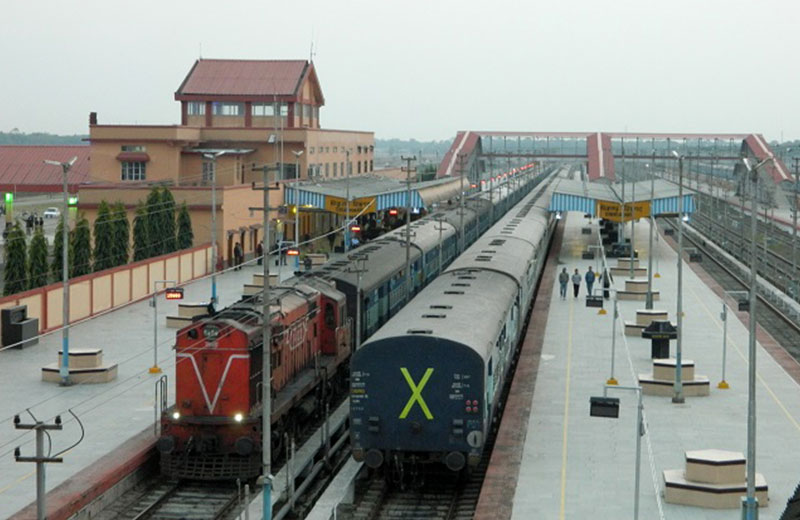[vc_row][vc_column][vc_column_text]
Close on the heels of the National Institution for Transforming India (Niti) Aayog advocating induction of experts in the government, the ministry of railways plans to float a tender to hire consultants to work on the National Rail Plan 2030.
The Union minister for railways Suresh Prabhu, in his budget speech of 2016, had announced the formation of an integrated plan in order to develop existing infrastructure, inculcate efficient and transparent investment practices, and establish standard methodology, among others.
“This is more like an engineering plan than a business plan to see where to build network, where to get connectivity, etc. It will become the railways’ integrated plan for 2030. V.K. Gupta (former Railway Board member) is heading a one-man committee and we will hire outside consultants. There will be a tendering process,” said a senior official at the ministry of railways requesting anonymity.
Prabhu, while announcing the rail budget 2016-17, had stated that a National Rail Plan was required in order to provide long-term perspective to plan – to be put in place in consultation with state governments, public representatives and relevant ministries – for augmenting the railway network.
“NRP-2030 (National Rail Plan 2030) will endeavour to harmonise and integrate the rail network with other modes of transport and create synergy for achieving seamless multi-modal transportation network across the country. This will also achieve the Prime Minister’s vision of integrated planning and cost optimisation of the transportation network by laying new railway lines and new highways together in tunnels and over mega-bridges,” Prabhu had said.
On 2 August, speaking in the Lok Sabha, Prabhu said the ministry of railways was working on a long-term plan for the development of the Indian Railways.
Niti Aayog vice-chairman Arvind Panagariya, in a presentation to Prime Minister Narendra Modi on the 15-year vision document for all-round development of the country, batted for induction of experts from various organisations in the government.
“Increased complexity of the economy has meant that as a general rule, it is no longer possible for generalists to learn any subject within a matter of weeks or even months,” Panagariya was quoted in the news report.
Confirming the development, the spokesperson for the ministry of railways said, “We are planning to engage outside consultants to assist in the National Rail Plan and the dedicated freight corridor plan. Tendering for hiring outside consultants will begin shortly.”
The dedicated freight corridor, one of the biggest infrastructure projects in the country, aims to create high-speed connectivity to ports and the country’s largest industrial zones.
Despite having a coastline of around 7,517km and 12 major ports, the shipping industry caters to a mere 7% in the overall cargo movement in the country. The National Democratic Alliance government plans to up the share to 10% by 2020, and dedicated freight corridors will allow fast movement of cargo, thereby increasing the efficiency of ports.
According to experts, the national carrier will benefit by getting outside help as long as inputs are evaluated and used carefully.
“The railways had modernisation committees in the past where they have taken outside consultation. So if they’re getting useful work done through external views, it will certainly help. The railways should ensure that it engages with the consultants efficiently,” said transport economist G. Raghuram, who is also a professor at the Indian Institute of Management, Ahmedabad.
The Indian Railways plans to invest Rs.8.5 trillion in the next five years with a total capital for infrastructure for the current financial year set at Rs.1.21 trillion.
[/vc_column_text][/vc_column][/vc_row]








